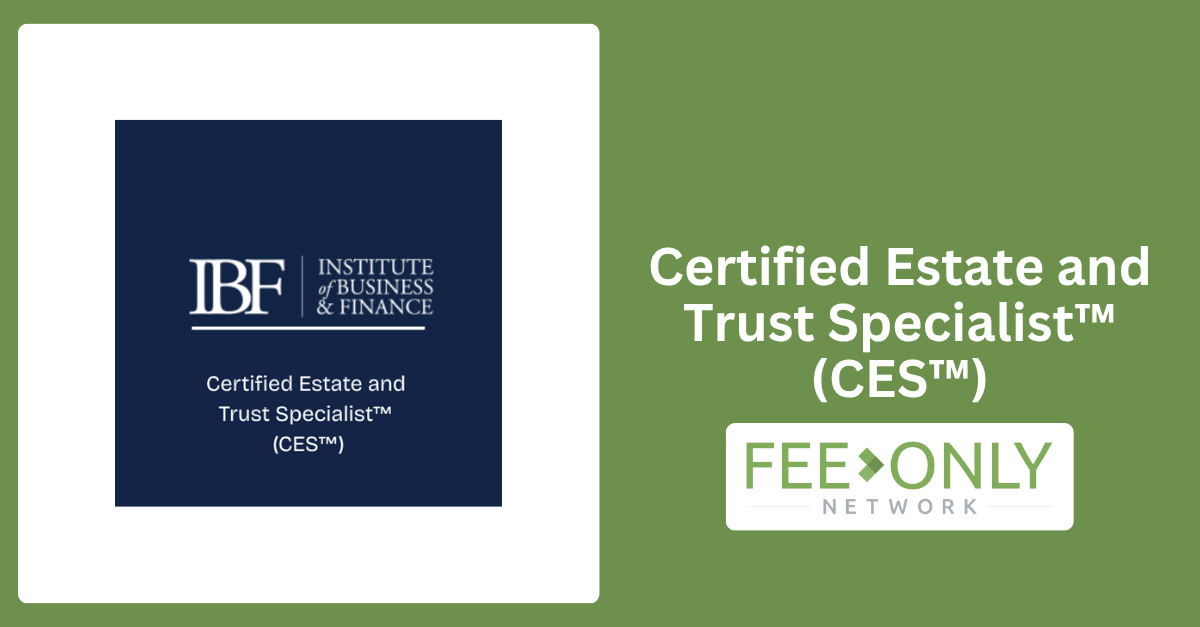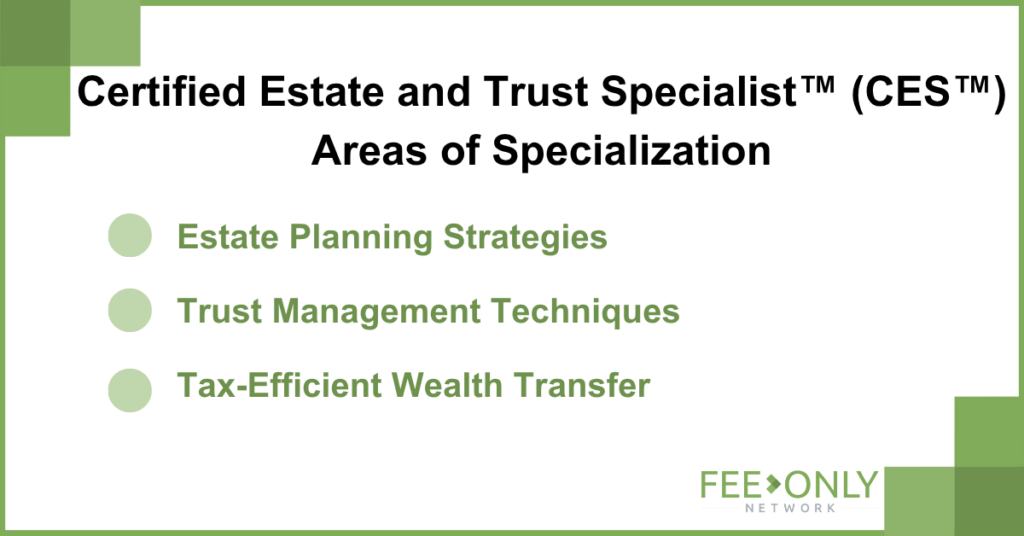
Updated: May 13, 2025

The Certified Estate and Trust Specialist™ (CES™) designation is awarded by the Institute of Business & Finance (IBF) to financial professionals who demonstrate expertise in estate planning and trust management. CES™ designees are equipped to guide clients through complex matters such as wills, trusts, probate, tax strategies, and asset protection, ensuring that wealth is preserved and transferred according to clients’ wishes. This credential signifies a commitment to excellence in estate planning and enhances a professional’s credibility in the financial services industry.
The CES™ designation is a professional credential that signifies specialized knowledge in estate planning and trust management. Professionals holding this designation are trained to assist clients with creating comprehensive estate plans, understanding the nuances of wills and trusts, navigating probate processes, and implementing strategies for tax efficiency and asset protection. The CES™ program emphasizes practical applications, enabling advisors to offer tailored solutions that align with clients’ financial goals and family dynamics.
To obtain the CES™ designation, candidates must meet specific educational and experiential requirements:

A Certified Estate and Trust Specialist™ provides clients with comprehensive guidance on estate planning and trust management. Their responsibilities include:
Individuals seeking to create or update their estate plans can benefit from the expertise of a CES™. This includes:
The Certified Estate and Trust Specialist™ (CES™) designation equips financial professionals with the knowledge and skills to provide comprehensive estate planning and trust management services. By working with a CES™, clients can ensure their assets are protected, tax liabilities are minimized, and their estate plans reflect their personal and familial goals.
Governing Body: The CES™ designation is conferred by the Institute of Business & Finance (IBF).
What topics are covered in the CES™ curriculum?
The CES™ program encompasses estate planning fundamentals, including wills, trusts, probate processes, tax strategies, retirement account considerations, and post-mortem planning.
How long does it take to complete the CES™ program?
The self-paced nature of the CES™ program allows candidates to complete the coursework and examinations within a timeframe that suits their schedule, typically ranging from several months to a year.
Is the CES™ designation recognized nationally?
Yes, the CES™ designation is recognized across the United States and is included in FINRA’s list of professional designations, though FINRA does not endorse any specific credentials.
Can a CES™ provide legal advice?
While a CES™ has extensive knowledge in estate planning, they are not licensed to practice law. Clients should consult with an attorney for legal advice or services.
What is the cost of obtaining the CES™ designation?
As of the latest information, the CES™ program costs $1,365, with an annual renewal fee of $125. Additional costs may include continuing education courses to maintain the designation.

Allan Slider is the Founder of FeeOnlyNetwork.com, a one-of-a-kind digital platform that elevates the visibility of fee-only financial advisors, individually and collectively. Fee-Only advisors are ONLY compensated by the client and NEVER make commission by selling financial products, or receiving kickbacks from brokerage firms. Allan is a consumer & investor advocate and a 20+ year veteran of online marketing for financial advisors.

If you're seeing this message, it's because the web browser you're using to access our site is much older and no longer supported. Due to privacy and safety concerns, we don't allow older browsers to access our site. In order to access WhyFiduciary.com, please use a newer browser, like Internet Explorer 10 or above, Google Chrome, or Mozilla Firefox.
Download a newer browser